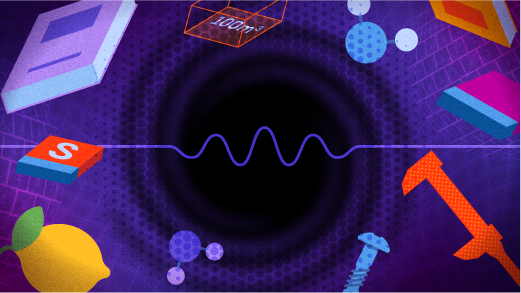What's up in
General relativity
Latest Articles
New Maps of the Bizarre, Chaotic Space-Time Inside Black Holes
Physicists hope that understanding the churning region near singularities might help them reconcile gravity and quantum mechanics.
The #1 Clue to Quantum Gravity Sits on the Surfaces of Black Holes
A black hole formula worked out in the 1970s remains the most concrete clue physicists have about the threads of the space-time fabric.
The Logic That Must Lie Behind a New Physics
The philosopher Karen Crowther digs into how the space-time fabric could possibly emerge from something non-spatiotemporal.
The Thought Experiments That Fray the Fabric of Space-Time
These three imagined scenarios lead many physicists to doubt that space-time is fundamental.
John Wheeler Saw the Tear in Reality
Until his dying days, the giant of 20th-century physics obsessed over the underpinnings of space and time, and how we can all share the same version of them.
The Unraveling of Space-Time
This special issue of Quanta Magazine explores the ultimate scientific quest: the search for the fundamental nature of reality.
Mathematicians Prove Hawking Wrong About the Most Extreme Black Holes
For decades, extremal black holes were considered mathematically impossible. A new proof reveals otherwise.
The Geometric Tool That Solved Einstein’s Relativity Problem
Tensors are used all over math and science to reveal hidden geometric truths. What are they?
Mathematicians Attempt to Glimpse Past the Big Bang
By studying the geometry of model space-times, researchers offer alternative views of the universe’s first moments.








